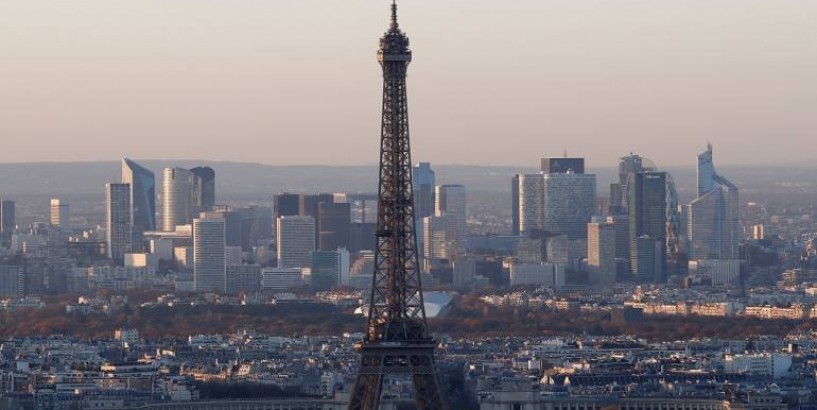Top economic powers take pride in being home to leading financial centres, be it New York, London or Tokyo. India, in a bid to become a part of this global league, also looked to make Mumbai as a major financial centre.
In 2006, the government established a committee to make Mumbai a financial centre. Its recommendations were widely discussed but not implemented and the focus turned to Ahmadabad’s GIFT city under the present government.
Although it is not studied widely as it should be, the “Geography of Finance” tells us about wider political forces which make financial markets functional in certain locations over others. In current times, it becomes more relevant because of Brexit and Paris’s bid to replace London at least for European financial activities.
Historically, London dominated the world of European and global finance as the capital of the British Empire. In the early 20th century, the US replaced the UK as the world’s leading economy and New York became a major financial centre as well.
Still, London maintained its stronghold on finance and continued driving the economy of the UK. This especially became true in the wake of Thatcher reforms which led to the UK exiting from inefficient industries and focusing on financial activity.
It retained this domination through the formation of the Eurozone and adoption of the Euro as the common currency by many members of the European Union. Despite not adopting the Euro, London remained the main centre of European finance, ahead of Frankfurt and Paris.
Thus, major financial organisations maintained their head offices in London to get access to European financial markets. In 2011, London also became home to the European Banking Authority (EBA), which was established to create a single rulebook for banking in Europe and should have been ideally located in the mainland. This was ironical as European banks faced a different set of problems than those of British banks, yet the moral authority remained with London.
But then, the British model suffered two shocks in the last 10 years. The first shock was the global financial crisis which led to an overall decline in financial activity, thus impacting the UK economy. This was a cyclical shock. However, the second one was structural. With Brexit, London is no more the gateway to European finance.
The bidding for the relocation of EBA headquarters was won by Paris. The choice of Paris is interesting as France has always tried to compete first with the UK and then with Germany for financial superiority but to no avail.
In the 2018 Global Financial Centres Index, London topped the rankings while Paris lagged at 24th rank. Even Frankfurt was slightly ahead at 20. The rankings also show how once dominant European financial centres have slipped far behind with several Asian centres dominating the list after London and New York.
Now though, the French authorities, particularly their central bank, are leaving no stone unturned. The Bank of France Governor has been pitching for Paris as a financial centre in several recent speeches. He has pointed out that Paris is home to "one of the most developed capital markets in continental Europe, the first asset management industry, a leading bond market, the largest commercial paper market and the largest private equity investor in continental Europe...
"Paris is already home to the European Securities and Markets Authority and will soon host the European Banking Authority. In addition, the Paris Court of Appeal was granted an international chamber last February, with international commercial affairs falling within its remit. That will duly complete the Paris court organisation, which already includes an international chamber in its commercial court."
These are exactly the so-called ‘soft infrastructure’ required for financial markets to work as cited by several researchers.
Just when Paris thought it got a shot in the arm, the city received a body blow via the recent outbreak of yellow-vest riots. Parisians protested widely against high living costs in the city denting President Macron's popularity, thereby prompting him to reverse taxes and promising wage increases. The protests point to high living costs in the city which will act as a deterrent for a financial centre which is trying to attract financial companies and their employees.
It will be interesting to see how the French authorities try and take this Paris agenda forward. This is definitely not going to be a short-term goal but will take its own time.
Charles Kindleberger, the economic historian who studies financial centres listed certain factors that shape a financial centre: it should be an administrative capital, host the central bank, have a tradition of financial activity, be centrally located & a transport hub leading to economies of scale, be headquarters of multinational companies and policy-making.
Paris ticks the above factors, especially in France. What has changed over the years are two things. One, Paris does host France's Central Bank but the country has given up its monetary policy to European Central Bank which is headquartered in Frankfurt. Two, historical reasons never really allowed France to position itself as even a European financial centre with London always taking the lead. This has changed because of Brexit.
French policymakers should do their best to convert this opportunity and actually start by setting smaller targets and look for a gradual rise in rankings of international finance centres. Paris has long played an important role in World and European history. Whether it will play an equally important role in the contemporary world of finance remains to be seen.









